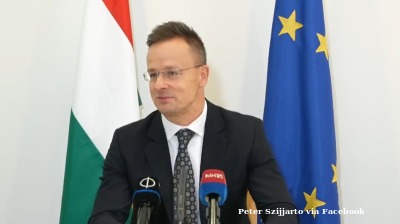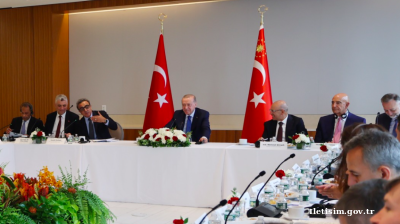Turkey’s central bank announced it was only raising the highest of its four interest rates by 50 basis points on December 14, despite the country’s overheating economy, causing the Turkish lira (TRY) to give up much of the ground it has recovered lately.
The national lender lifted its late liquidity window rate to 12.75% from 12.25% despite being under enormous pressure to raise by at least 100 basis points, given the pressure on the TRY and double-digit inflation running at a 14-year high.
The lira fell to 3.8913 to the dollar after the rates announcement, from 3.8275. It stood at 3.8824 in late afternoon Istanbul time. Its all-time low came on November 22 when the currency sank to 3.9826.
Economists believe the central bank is under massive political pressure from Turkish President Recep Tayyip Erdogan, who continues to advance his unorthodox theory that the economy needs lower rather than higher borrowing costs.
“I think this relatively small hike—at least compared with market expectations—has raised fears that political pressure may be bearing on the central bank’s decision making,” said Capital Economics senior emerging markets economist William Jackson.
Timothy Ash at BlueBay Asset Management was somewhat less guarded, responding to the rise by saying: “Is that a joke? The Turks have underwhelmed again. 50bps in tightening? The market was assuming a minimum of 100bps, and that was not what they should do (400bps) but what they assumed the dovish [central bank] would do.”
He added: “The Turkish markets have been behaving reasonably well in recent weeks, despite a really tricky political/geopolitical newsflow, because I think the market assumed the central bank would do the decent thing and hike, meaningfully. This muted hike leaves Turkish markets exposed again. Guess the writing was on the wall this week with Erdogan's statement criticising rate hikes.
“Look, here are the basics – real GDP growth was at 11.3% y/y for Q3, inflation is just short of 13% with the central bank target at 5%, the current account deficit is at $40bn+ and widening, and the quality of financing is poor/deteriorating. What does the central bank of Turkey see that everyone else does not?”
In a separate note to investors after the rate hike announcement, Ash said: “It’s been notable in recent weeks that we have seen locals on the bid again for FX, with foreigners going the other way, assuming that the central bank would do the decent thing and tighten.”
Following its monetary policy committee (MPC) meeting, the central bank also announced it was leaving the benchmark repo rate at 8%, the overnight lending rate at 9.25% and the overnight borrowing rate at 7.25%. Given the current inflation rate all four of its real interest rates therefore remain negative.
Seventeen of 18 economists in a Reuters poll had predicted the late liquidity window rate would be raised. Their average forecast was for an increase of 100 basis points. Six economists had forecast the overnight lending rate would be raised 25 to 100 basis points.
Just two days before the MPC meeting, Erdogan reiterated his stated belief that inflation will not fall in a country with high interest rates.
The overheated state of Turkey’s economy is widely blamed on overlending. A credit binge has been brought about by various government stimulus measures including a credit guarantee fund aimed at backstopping loans for businesses, and tax cuts aimed at boosting consumption. Many of the measures were brought in after the country experienced an economic blip following the July 2016 attempted coup.
After releasing its rates decision, the central bank put out a bland statement that was much the same as the one issued after the previous MPC meeting, reading: “A tight stance in monetary policy will be maintained decisively until the inflation outlook shows a significant improvement and becomes consistent with targets.”
QNB Finansbank chief economist Gokce Celik told Reuters: “Turkey’s risks (diplomatic tensions with the EU and US) will continue to pressure the exchange rate and a 12.75% interest rate will be insufficient to protect the Turkish lira against these risks.”
News

Hungary to challenge EU’s ban on Russian gas imports, vows to block REPowerEU
Hungarian Foreign Minister Peter Szijjarto says the European Council’s decision to ban Russian fossil fuel imports by 2027 could jeopardise Hungary’s energy security.

Slovak Foreign Minister Blanár reiterates support for Ukraine’s EU bid
Juraj Blanár says Ukraine is "ready in a way" for accession, but notes objections from some EU member states.

Poland’s Empik prepares Warsaw IPO, reportedly to raise up to €200mn
Book and media retailer Empik is planning to launch an IPO on the Warsaw Stock Exchange in 2026.

Kremlin says leaders’ good relations helped Budapest secure summit
Hungary is expected to host a second summit between Vladimir Putin and Donald Trump on Ukraine after their talks in Alaska in August did not lead to a breakthrough.
_2_1761012864.jpg)



